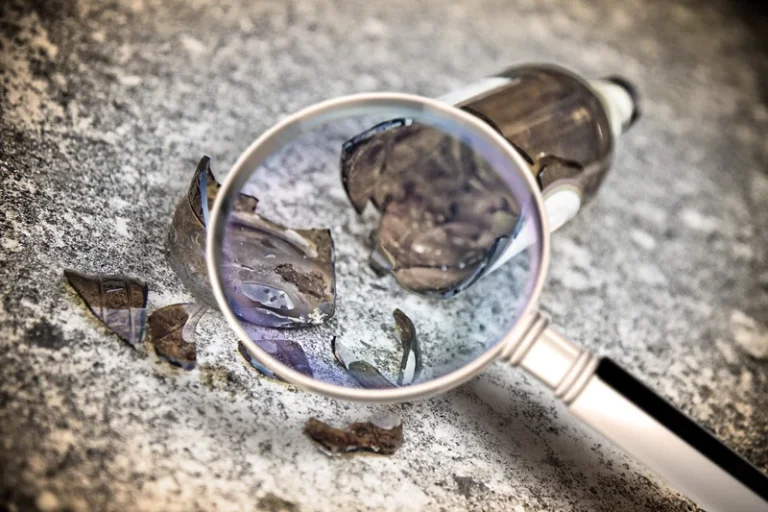What to do after a relapse

Relapsing is an unfortunate aspect of recovery. Relapsing is not part of everyone’s story, but it does exist and many who choose to get clean and try recovering will struggle with relapse. The numbers aren’t concrete, but somewhere between 45%-60% of people that undergo recovery relapse at some point during their recovery.
This doesn’t say anything about long term recovery however, as many people who relapse get back on track again and manage to get clean entirely. This statistic does speak to the rates of those who go through relapse.
Relapse shouldn’t be expected, but it should be prepared for. Relapse is such a tricky subject because one’s reaction to it needs to change based on their experience with relapse.
Let’s use an example to illustrate this point: if someone has just gotten clean, they should avoid relapse at all costs. They should avoid relapsing like the plague, and do whatever they can to set themselves up for the easiest path to not relapse.
If they have recently relapsed: their perspective needs to change, and fast. This is where having a good support group is so helpful. Relapse needs to be taken seriously, but if one relapses and fails to forgive themselves, the stress of the relapse itself can cause someone to never recover again.
This is why relapse is so tricky. It needs to be taken seriously, but it needs to be not the reason that one who has relapsed stays relapsed.
Understanding this push and pull with relapse will help everyone in the recovery process. Read on to help further understand this relationship and how you can manage relapse appropriately.
Adjust Your Expectations After Relapse
Relapse can be a difficult time. Nobody wants to go through relapse, and many might have set extremely high expectations for themselves when first going through rehab. Relapse can be seen as an extremely difficult time for some, and for others it will be viewed as a massive personal failure.
After relapse, it’s a good idea to adjust your expectations and try to think of your relapse as a momentary lapse in judgement, and then adjust your expectations to help support that idea. Don’t give yourself another chance to relapse, but give yourself the opportunity to get over it and move on.

Take back control of your life and start on the road to recovery now.
Use This Time for Introspection
As mentioned before, relapse can be a very difficult time. Many different thoughts will be flooding your mind, thoughts of inadequacy that you might not be able to control. In these moments, it’s good to slow down and take some time for introspection.
If you’ve relapsed, it’s just another step on your journey to recovery. You need to realize this, and move forward. How far have you come since your relapse? What different struggles have you avoided since then? What was the exact thing that brought you down, and how can you avoid that thing in the future?
Relapse is another chance to learn about yourself, humble yourself, and get in control of your weaknesses. This time can be a chance for you to strengthen your bonds between your friends that support you and give them more opportunities to help keep you clean.
Look For Support
If relapse starts to look like more of a longer series of patterns, it might be time to start looking for support again. If you’ve gone to rehab before, it might be time to check back in and get your head on straight again.
It’s not easy to admit that your relapse isn’t just a one-off, one-time thing. Checking back into rehab is an even more difficult experience. That said, you checked in once at a time when you valued your health and sanity over your pride, you can find that headspace again and go in with your head held high knowing that you’re doing what’s best for your body.
If you’ve never been to rehab but understand the dangers of relapse, rehab can be something that is still good for you. Reach out to a facility and they will make the necessary arrangements for your situation.

Re-evaluate Your Process
Treatment looks like many different things to many different people. Some people need rigorous rules and guidelines to follow, others can take a more casual approach and avoid specific things in general.
Relapse could be a momentary lapse in judgement, it could be a minor chink in your armor, but it could be evidence that your process is not sound enough. Taking the moment of introspection that you set aside for yourself will be a good time to evaluate exactly what facilitated your relapse.
Creating a road forward is always the goal, and understanding your past is a great way to make the road as clear as possible.
Once the evaluation process has been completed, you’ll need to actually implement the changes that you have settled on. It’s a freeing experience to evaluate what changes you should make, but then go on as if nothing has changed.
Remember, if you’re in this position, it’s because something didn’t work right. Getting it right the second time is key, and changes might need to be made. If you don’t make any changes, you could manage to avoid a second relapse, but if you relapse again, even in the same fashion, it’s definitely time to look at what should be adjusted in your routine.
Look Forward
Relapse is hard, but it doesn’t need to be the end of the road. Remember that at every step in this process you should be looking to try and forgive yourself. Without forgiveness, you can easily slide back into the pit that you first found yourself in.
Don’t look back, look forward. After you’ve made the necessary changes and understood how you can be different, take the time to congratulate yourself on what you’ve done. Relapse is a bad thing, but it doesn’t have to be the end of the world. Don’t let it be, by making sure to encourage yourself and surround yourself with those that will encourage you as well.
Look at each step as an opportunity, and take each step in stride. Do what needs to be done, but encourage yourself and listen to those close to you as they try to build you up however they can.
Broad Perspectives
When first going to rehab, a common practice is to create a list of things that could facilitate a relapse and to create scenarios in your head that will help prepare you for what is to come. The idea is that if one is well prepared, they can use these scenarios even if they’re slightly different from reality to help influence their actual behavior in the real world.
After relapse, two things are possible: either you didn’t think of the possibility that you fell to, or you chose not how you expected to when you came to that option. Either way, relapse is a chance for you to do this exercise another time and try to prepare for another situation.
Community is key, and listening to your peers and those who have recovered before you can be incredibly helpful. If you’re looking for a silver lining in this, it’s that maybe you can help someone else who will come after you to avoid the mistakes that you made.
Everyone’s situation is different, and this might also be a time to reevaluate something that was not thought of as a major obstacle before. Stumbling blocks rise and fall, and nobody is impervious to everything.

This can be a difficult journey, but you don’t have to go it alone. Let us be your guide and provide you the environment needed to regain control of your life and begin the path to recovery.
What Next?
So you’ve relapsed, recognized what caused you to relapse, created a plan for the next time that thing comes into your life, and you’ve forgiven yourself that the relapse even happened in the first place.
Getting back on the track to recovery is such a freeing feeling. What can you do to further your experience? Firstly, just getting back on track that you were on before can be more difficult than most people think, so give yourself time to find your groove again. Secondly, you can look to create more useful and helpful habits.
Most of the time, relapses happen when people have their guard down, are alone, and/or are bored. Minimizing any of these aspects will help you get your life back and slip back into the role that you want to create for yourself.
If you or a loved one is struggling with addiction, or may be struggling with relapse, reach out as soon as possible. Support is out there, it is accessible, and there are so many people out there who want to help you. Getting you back on track is everything that these facilities want to do.
If you think your relapse is only a one time thing, you can still reach out to these communities and ask for support at ecosoberhouse.com. If you think your relapse is getting more serious, open up to one of these professionals quickly and explain to them that you want to get back on track as quickly and painlessly as possible.




